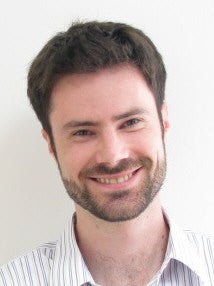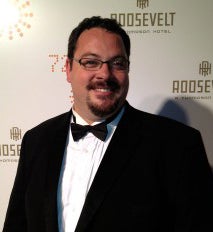Experts discuss the “Blurred Lines” infringement case
USC experts discuss how Marvin Gaye/Robin Thicke case could “put a new cop in the head of every future songwriter.”
Contact: Andrew Good at (213) 740-8606 or gooda@usc.edu.
Ruling will lead to more music infringement lawsuits
 “It may be the biggest music plagiarism verdict ever. The musicologists for the Gaye family didn’t say there was copping of a specific string of notes or rhythms, but this constellation of elements. If you want to copy the ‘vibe’ of a song, now you have to argue someone is copying all the stylistic elements that make up that song. I think we’re going to see a lot more music infringement lawsuits as a result of this case.”
“It may be the biggest music plagiarism verdict ever. The musicologists for the Gaye family didn’t say there was copping of a specific string of notes or rhythms, but this constellation of elements. If you want to copy the ‘vibe’ of a song, now you have to argue someone is copying all the stylistic elements that make up that song. I think we’re going to see a lot more music infringement lawsuits as a result of this case.”
Dan Nabel, director of USC Gould School’s Intellectual Property clinic, is an expert in copyright infringement cases. Before joining USC, Nabel successfully litigated dozens of cases and counseled clients on issues relating to copyright, fair use, trademark, right of publicity, and the computer fraud and abuse act (among others). He also served as the editor-in-chief for Greenberg Glusker’s award-winning Entertainment Lawyer Blog, “Law Law Land.”
Contact: (213) 740-7613 or dnabel@law.usc.edu.
The “line may have just moved, and in a big way”
 “We in the biz always believed that the general rule of thumb about what is protected by a song copyright has been, essentially, a song’s melody and lyrics – not it’s ‘vibe,’ ‘feel,’ ‘groove’ (or even chords)! This verdict suggests that line may have just moved, and in a big way. If this isn’t successfully appealed, it could put a new cop in the head of every future songwriter, record producer, label exec, artist manager and attorney.”
“We in the biz always believed that the general rule of thumb about what is protected by a song copyright has been, essentially, a song’s melody and lyrics – not it’s ‘vibe,’ ‘feel,’ ‘groove’ (or even chords)! This verdict suggests that line may have just moved, and in a big way. If this isn’t successfully appealed, it could put a new cop in the head of every future songwriter, record producer, label exec, artist manager and attorney.”
Paul Young, director of the USC Thornton School’s Music Industry Minors program, used to negotiate sound recording sample uses for Universal Music Group. He can discuss how the “Blurred Lines” case differs from previous music copyright cases.
Contact: (213) 740-8856 or paulyoun@usc.edu.



